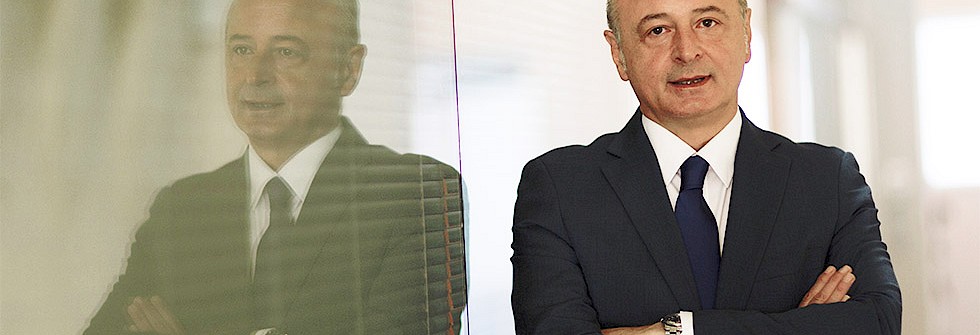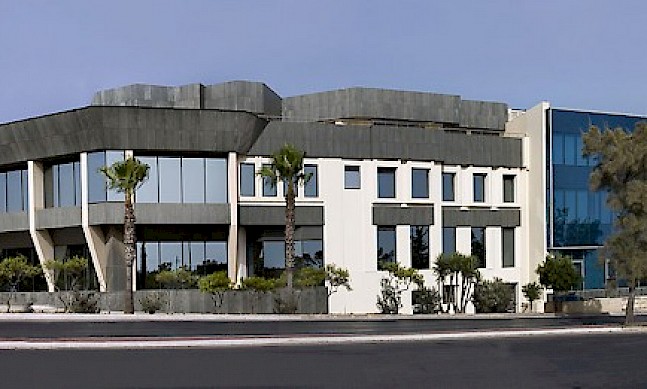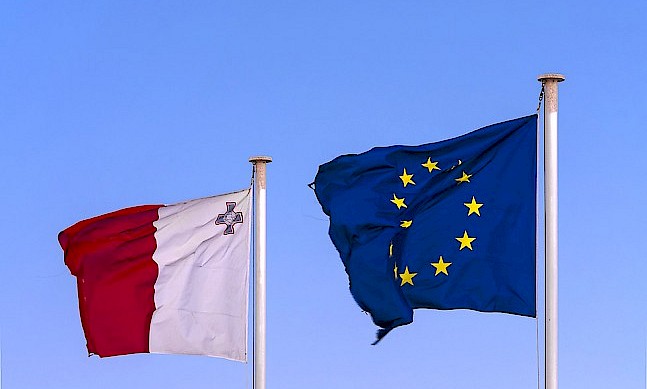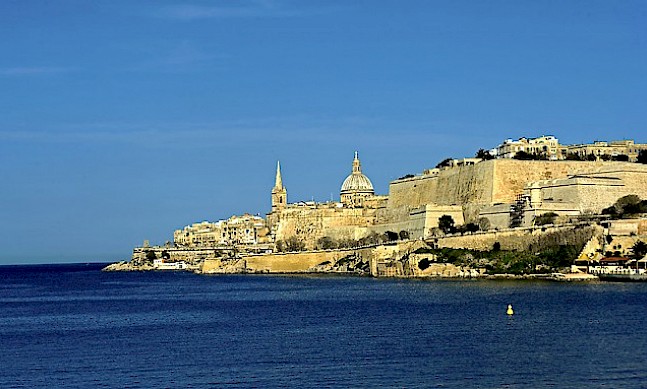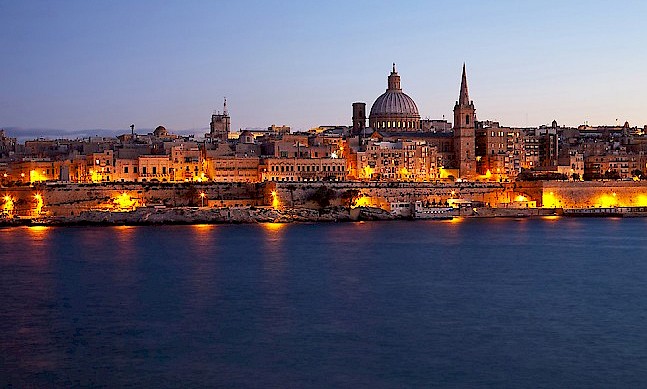Edward Woods was appointed chairman of the Malta Communications Authority in 2013, and has worked to transform it from simply a regulator to a powerful facilitator and motivator of innovation in technology and communications. He spoke to The Report Company about his vision for the authority and explained why Malta is an ideal destination for ICT investment.
The Report Company: How would you assess the communications sector in Malta?
Edward Woods: We may be a small island state, but in electronic communications we regularly out-perform many far larger countries. The full liberalisation of the electronic communications market in 2003 transformed the Maltese telecommunications landscape. Increased competition spearheaded a robust and efficient supply of networks and services to the industry and to the consumer. This supply has continued unabated, offering enhanced quality, efficiency and resiliency.
Malta currently boasts four nationwide broadband networks, two of which serve the market through next-generation access networks. All households in Malta have access to high-speed broadband services with speeds reaching at least 100 Mbps, placing Malta amongst the front-runners in Europe with regard to nationwide availability of such services. Whilst our operators continue to invest and upgrade their networks in order to cater for emerging technologies, our consumers are also hungry for innovative and higher-speed services; our mobile penetration rates have long exceeded the 100 percent mark, mobile data usage is on the up year-on-year and subscriptions to high-speed broadband services are following the same upward trend.
Malta’s location in the heart of the Mediterranean also renders the need for robust international connectivity imperative for its economic development. Connection to mainland Europe is currently guaranteed through four cable links.
TRC: What makes Malta an attractive destination for investors in the sector?
EW: Malta’s agility to adapt and react to developments in short order is what attracts many investors. Being small in size has its advantages. Our size allows us to adopt progressive regulation quickly, which can give substantial opportunity for those who are creative enough. Needless to say, in the current environment of technology-led disruption, I dare to say that such nous is very valuable, if not the basis of a whole new, unparalleled business strategy.
We strongly believe that business disruption can open up many opportunities for Malta. Malta’s ability to attract the i-gaming industry to its shores is only one example. Malta pioneered a regulatory regime that favoured single-market principles. This made Malta a favoured destination for the industry, as it offered the legal certainty that others were hesitant to allow.
Malta also offers a harmonious blend of economic and regulatory stability, investment friendly incentives, strategic policy making, as well as a rich culture, great climate and respectable work ethics. Furthermore, operating costs tend to be considerably more advantageous, whilst European delivery standards are guaranteed.
TRC: What is MCA doing to keep up with the ever-changing demands of the electronic communications market?
EW: Whilst our regulatory framework has ensured sufficient network rollout and the proliferation of innovative products and services at the right price for consumers and of the highest quality, we have also focused our energies on the efficient and seamless integration of such technologies into other sectors that are highly dependent on ICT, such as education, investment, health, transport, tourism, amongst others.
“Malta’s location in the heart of the Mediterranean renders the need for robust international connectivity imperative for its economic development.”Post This
Our regulatory work shall continue unabated to ensure that our markets remain competitive. However, we shall be working with other stakeholders to see how technology can be applied to sustain past successes and take us to the next level by promoting and facilitating innovation in communications.
TRC: How are you striking a balance between enabling new entrants into the market and taking into account the investment needs of the major operators?
EW: The telecommunications market in Malta is characterised by constant infrastructural investment, sustained competition, innovation, and a progressive regulatory framework, which continues to pave the way for increased growth in the local communications scenario.
The rules for enabling new entrants into the market are set in a transparent and judicious manner, following careful consideration and analysis of the different markets. The process for new entrants to become authorised to provide new services to the public is based on a straightforward notification process and the MCA provides any clarifications to interested parties in advance. Where scarce resources such as radio spectrum are required, the MCA follows efficient mechanisms to ensure their availability and use in efficient manners and at fair prices.
Obligations which are imposed on existing operators are also tailored to intervene only where required, whilst ensuring that new operators are enabled to offer services that are interoperable and can interconnect with other established providers.
Bearing in mind that the MCA is the authority responsible, on behalf of the government of Malta, to manage the national spectrum assets of Malta, it endorses a sustainable market-driven process towards the assignment and licensing of spectrum resources. Spectrum caps are in place to ensure a competitive market and to facilitate new entrants. Combining with its light-touch approach towards regulation and its low barriers for authorisation, the MCA seeks to balance the impetus given to the market by new entrants without over-fragmenting the market with the risk of jeopardising investments in the sector.
TRC: How does MCA coordinate the needs of the different stakeholders within the communications sector?
EW: The biggest challenge in advancing innovation is the fact that it has to be a government-wide policy championed simultaneously by the various relevant competent entities. Over the past years we have experienced radical changes in the way markets behave, bringing about new challenges and opportunities for the Maltese economy. Technological advances have lowered geographic barriers to trade, whilst new unprecedented markets for digital goods have emerged. Europe’s efforts aimed at establishing a digital single market will continue accelerating such shifts.
It is very important to highlight how boundaries between traditional sectors are blurring. Today, as markets converge, it is very difficult to make any clear distinction between businesses operating in the media, technology and telecommunications sectors. Furthermore, market consolidation and technology advancement have also opened the floodgates to disruption, with new players using technological advancement to disrupt sectors such as tourism, transport and retail, to give a few examples.
“The MCA seeks to balance the impetus given to the market by new entrants without over-fragmenting the market.”Post This
This is relevant because the public sector and education systems tend to be structured to reflect the way traditional businesses operate, oriented to target specific economic sectors and old business methods. If we want to host innovation, we must first innovate from within to ensure that our internal structures can contribute to the development of an environment that is conducive to attract innovative business.
Within this spirit, the MCA considers that it has a leading role to play in ensuring that the infrastructure and the related regulatory regimes are robust and future-proof for business innovation. However, the MCA can also be very effective in supporting other competent entities working on related aspects of innovation. Over the past years, the MCA has supported other public, educational and private stakeholders in their efforts which are aimed at developing policies in areas such as broadcasting and human capital, development of incentives and support programmes for start-ups, attracting FDI, development of educational programmes, the development of incentives for ICT investment, and training programmes to mention but a few.
TRC: How is MCA capitalising on Malta's size and population density to promote Malta as a testing ground for new services?
EW: The Maltese government in recent years has actively encouraged foreign investors to establish their operations in Malta by developing and implementing policies that favour an open economy and support direct investment.
The MCA operates a test and trial regime for spectrum based technologies and services to attract such activities to Malta. The licensing regime facilitates access to spectrum for technologies and services that are still at the developmental stage by introducing an accelerated licensing procedure and attractive licence conditions and fees for test and trial spectrum.
Malta’s geographic location offers local and international companies a unique opportunity to test innovative technologies and service implementations on a national scale and at minimal costs and is aimed at attracting proposition for companies developing wireless solutions.
Test and trial licences have been issued to the local aviation, mobile communications and broadcasting sectors. The MCA is now keen to bring this facility to the attention of international equipment manufacturers and research organisations.
The MCA is also seeking strategic partners to develop the opportunities of satellite technologies. We are currently establishing our position in this area and exploring how best to exploit opportunities whilst maximising on our own satellite spectrum and space assets. Beyond technology, we are eager to support companies aspiring to serve the digital single market and beyond. We are certainly open for business.
TRC: How do you ensure that Malta keeps up with the investment needed to expand its network infrastructure and technology?
Through regulatory certainty, the MCA ensures long-term sustainability of the telecommunications market, encouraging service providers to expand their infrastructure and invest in new technologies. Services take-up and usage, in most cases, is going from strength to strength. However, regulation is still essential in the communication sector to nurture a competitive market which benefits consumers with innovative products and services at a reasonable price.
This strategy has paid off, as shown by the degree of infrastructure competition in Malta. Although fibre-to-the-home (FTTH) is in its initial stages of roll-out, Malta already boasts of a broadband infrastructure that exceeds Europe’s digital agenda 2020 targets.
The digital agenda scoreboard, published annually by the European Union, once again ranks Malta first amongst the twenty eight EU member states in next-generation broadband network coverage. Malta also climbed two places, ranking ninth overall, from eleventh in 2013, in the connectivity segment of this report, which assesses the deployment of broadband infrastructure and its quality.
“Malta’s geographic location offers local and international companies a unique opportunity to test innovative technologies and service implementations on a national scale.”Post This
The MCA regularly engages in market feasibility studies to assess investment potential for new network infrastructure and technology. These studies, such as the market feasibility for FTTH conducted in 2013, focus on the cost, benefits and investment modalities of major physical infrastructure programmes to advance the broadband capabilities of the nation. More recently, the feasibility study for an international submarine cable seeks to establish the cost, benefits and investment options for improving the connectivity of Malta towards major European connectivity hubs.
The MCA is launching a number of initiatives aimed at increasing the country’s participation in the satellite communications industry in order to attract interested international entities to its shores. These entities have the potential to bring with them relevant experience in this industry required to strengthen the potential development of new markets. These initiatives focus on the provision of facilities for the registration of new satellites with the International Telecommunication Union (ITU), as well as processes which facilitate the establishment and operation of satellite earth stations in Malta. These initiatives form part of a wider set of activities, which are aimed at promoting Malta’s national infrastructure and space assets.
TRC: How do you collaborate with industry and academia to promote further development in the sector?
EW: The MCA works around the clock towards creating a culture which fosters innovation and development amongst the business community. This activity broadens the investment perspective of SMEs which, in time, are strongly acknowledging the importance and benefits of investing in web technologies.
In our ongoing efforts to assist SMEs in capitalising on the benefits of investing in web technologies, we have a renewed commitment to ensure that a future workforce has the necessary skills required in the digital age of tomorrow. The MCA is actively engaged in the eSkills Malta Foundation and contributes, alongside other representatives from government, industry and education, towards the expansion of ICT educational programmes and related formative initiatives, coupled with leading ICT development programmes.
An example of this is the agreement reached last year between the MCA and the University of Malta aimed at stimulating and supporting initiatives that bridge the gap between research, innovation and entrepreneurship in fields related to communication technologies and their applications. This agreement translates in a seed fund of up to €40,000 made available by the MCA through a scheme supporting two local start-ups to develop an innovative business idea with a view to eventual commercialisation.
TRC: What would you like to have achieved by the end of 2016?
EW: In the wake of the ongoing technological advancements and changing consumer expectations, we remain committed to ensure that the right conditions for continued investment prevail and that industry players continue on the path of rolling out new and better service offerings. Bearing this in mind, on 6th May 2015 the European Commission launched a strategy for a European digital single market which covers the various aspects depicting the digital economy and with an ambitious work programme being set for 2015 and 2016. Some of these aspects directly or indirectly fall within the remit of the MCA.
I am confident that by the end of 2016, Malta would have edged a step closer to fulfilling the 2020 digital agenda vision and targets. This will serve as good auspices for Malta’s first presidency of the Council of the European Union. I am sure this will inject renewed energy into our activities to sustain the communications sectors for continued economic and social growth.


